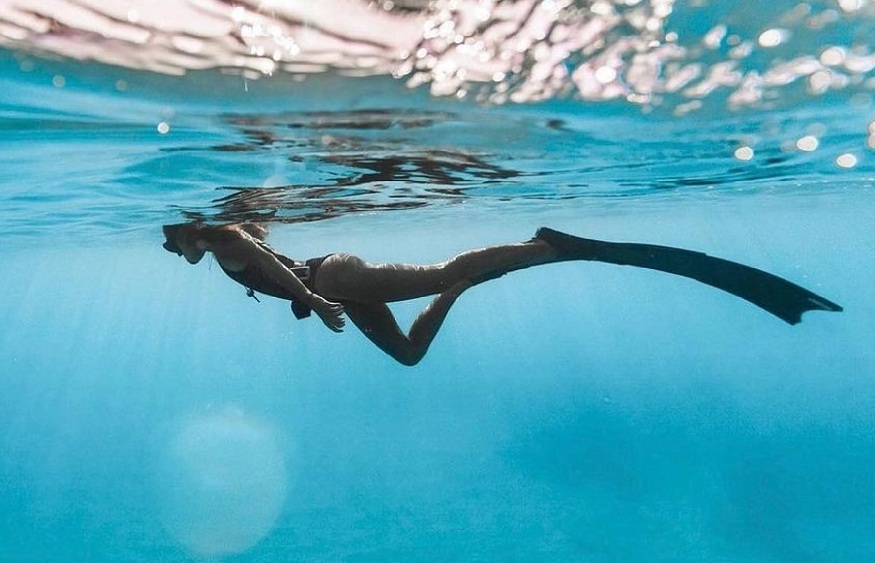Freediving is a captivating water sport that allows you to explore the ocean’s depths with grace and precision. Check from Wiki for more information. Whether you’re a beginner or an experienced freediver, mastering the art of weighing yourself while freediving is a crucial skill. It not only enhances your overall diving experience but also contributes to your safety. In this blog post, we’ll explore the importance of proper weighting in freediving and offer tips on how to easily weigh yourself while diving into the depths.
The Significance of Proper Weighting in Freediving
1. Buoyancy Control
The primary goal of achieving proper buoyancy control is to maintain neutral buoyancy while freediving. Neutral buoyancy means that you neither sink nor float. This equilibrium allows you to conserve energy, make precise movements, and stay comfortable during your dives.
2. Safety
Proper weighting is a fundamental aspect of freediving safety. It ensures you can easily return to the surface if the need arises, even without effort. Overweighting can lead to dangerous situations, while underweighting may affect your depth and maneuverability.
3. Equalization
Weighting affects your ability to equalize pressure in your ears and sinuses as you descend. Correct weighting reduces the pressure on your ears and sinuses, making equalization easier and more comfortable. Check out the benefits of freeviding here https://apneaboom.com/top-10-benefits-of-freediving-mind-blowing.html
How to Weigh Yourself While Freediving?
1. Calculate Your Optimal Weight:
- Estimate your body’s buoyancy by floating at the surface with a full inhale. This is the point where your body is most buoyant.
- Gradually exhale while floating until you find the point where you become slightly negatively buoyant, meaning you start to sink slowly. This is an excellent starting point for your weighting.
2. Choose the Right Weighting System:
- Belt weights are a popular choice. They are versatile and can be easily adjusted to achieve the desired buoyancy.
- Some freedivers prefer neck weights for a more streamlined profile, while others use ankle weights. Experiment to find the system that works best for you.
3. Be Conservative:
- It’s wise to start with slightly less weight than you might think you need. You can always add more weight if necessary, but it’s safer to begin on the lighter side.
- Consider the type of wetsuit you’re wearing. Thicker wetsuits provide more buoyancy, so adjust your weight accordingly.
4. Perform a Controlled Descent:
- During your dive, perform a controlled descent while monitoring your buoyancy. Slowly exhale to maintain neutral buoyancy as you descend.
- If you find yourself sinking too fast, add a small amount of air to your lungs, or adjust your weighting as needed.
As you embark on your journey to master the art of weighing yourself while freediving, consider the benefits of proper training and guidance. Apea Boom offers an array of freediving courses and resources designed to help you become a skilled and safe freediver. The experienced instructors will not only guide you through the intricacies of weighting but also provide comprehensive training in all aspects of freediving.
Conclusion
Proper weighting is an indispensable skill in freediving, ensuring your safety, comfort, and performance. By carefully estimating your buoyancy, selecting the right weighting system, and maintaining a conservative approach, you can easily weigh yourself while freediving. Additionally, consider the advantages of enrolling in freediving courses with Apea Boom to enhance your skills and elevate your underwater experience. The ocean’s wonders await, and mastering your buoyancy will make your freediving adventures even more extraordinary.

